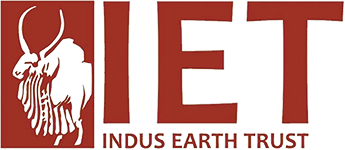Thatta, District. Year 2022
Introduction
Sindh received 385 percent more rain occurred between July 1 and August 19 this year. Rains wreaked havoc in the Thatta district. Many areas including hundreds of villages of Khagan, Chobandi, Kakrand, Haji Gharano, and Gharo union councils were 95% flooded. People are facing severe problems like; food, shelter, Water, and NFIs.
People are helpless due to the collapse of hundreds of crude houses and the accumulation of water in the houses. The administration has completely failed to provide relief to the victims. The recent rains forced populations to leave their villages; lost livestock, poultry, crops, kitchen accessories, and other domestic valuable assets. Homeless families of the heavy rains came on the nearest roads without shelter, food, and, water. Malaria and Diarrhea are the big challenges for children and women forced to live miserable lives. Victim families have a great challenge with COVID-19 spreading and affecting, they must be equipped with PPEs.
Indus Earth Trust provided WASH (Water, Sanitation, and Hygiene kits), food, and basic shelter support to flood-affected families in Thatta. This includes access to clean drinking water, hygiene kits, food supplies, solar lanterns, and emergency shelter.
Objectives
- Community Rapid Need Assessment
- Consultation with Thatta District Management
- Registration of Affected Families with Tokens
- Procurement of Relief Goods
- Distribution of Relief Items
- GRN from the Communities/ households
- Visibility of the Project
Relief Support Mechanism
- Consultation with Thatta District Management Indus Earth Trust (IET) consults with the local authorities in the district management. During these consultations, IET had close contact with Deputy Commissioner. Indus Earth Trust already permission letter was granted by the Deputy Commissioner’s office in Thatta. Indus Earth Trust also coordinated with the district police officer and social welfare officer for smooth flood relief operations.
- Registration of Victim Families Indus Earth Trust social organizers registered the victim families acquiring basic information including head of households, family members, village, contact details, and current needs. Indus Earth Trust prepared the database of the victim’s families that will help with communication and relief support.
- Procurement of Relief Goods Indus Earth Trust invited a minimum of three quotations for each relief good, comparative analysis, Purchase order, delivery of items, and goods received a note.
- Distribution of the Token Once the registration process is completed relief tokens distributed among the affected families. IET proposes that 1,000 affected families out of 13,992 were identified as the most affected families. Items distributed to beneficiaries only if they will provide tokens with their details, this ensures that the items were distributed amongst the right beneficiaries. The token system, allows beneficiaries to be aware of the COVID-19 SOPs, location, date & time, and items mentioned. The beneficiaries took tokens (mandatory) along with a copy of their CNIC (optional). This makes safety and helps proper management.
- Distribution of Relief Items IET communicated with district management about the project and activities regarding flood relief activities for the mitigate risk, proper distribution of the items, and provide a low-risk method of distribution. All the above-mentioned methodologies will be carried out by strictly following the COVID19 SOPs.
- Visibility of the Project Indus Earth Trust shared the project activities on the website, IET social media pages to encourage other civil society organizations, CSR programs, philanthropists, and donors for further support especially medical assistance.









